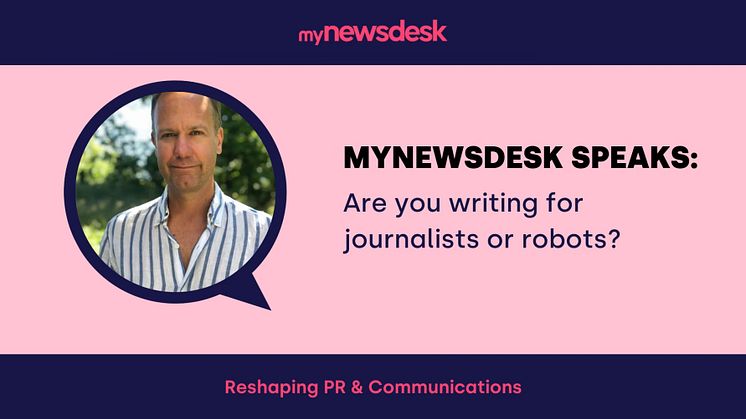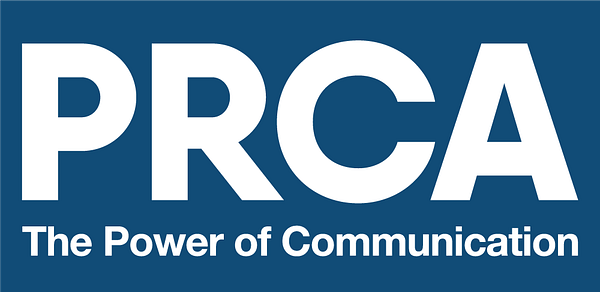
Press release -
Are you writing for robots or humans?
If someone asks you if you are writing content for robots, your natural response would probably be: Robots? No, I’m writing for journalists and my other fellow humans.
But have you ever asked yourself how a journalist has the time to go through hundreds of press releases per day, pick out the most interesting ones, create an angle that fits their readers, then write the articles and finally publish them?
When Mynewsdesk talks to journalists in our network, they say they sometimes have to create between 4-8 articles daily. That would then mean they go through the tedious process just described 4-8 times daily, which sounds rather taxing.
Fortunately, as Mynewsdesk continues to develop smart solutions for our users, selecting what material is worth sending to journalists is also becoming smarter.
Hence the initial question – are you writing for robots or humans?
The answer is yes; you are- at least to some extent.
Whether you like it or not, that is the harsh reality. Because there are two main ways to get a journalist's attention. There is personal contact; emails, calls, etc. Classic PR work, in other words. And then there is ‘beating the robots.’ This sounds more or less like a sci-fi movie (minus the fancy costumes and huge budget), but there is a similarity. And, just like in the movies – to beat the robots, you need to know HOW the robots think and WHAT makes them tick.
Trend sensitive robots
A robot works like a media monitoring tool. Depending on the robot's skill, it can easily pick up articles that match the right topic and then scan the text for keywords. Having the correct keywords in both headlines and text is essential. The challenge is whether the robot matches these keywords with a tool that analyses trends. This, in turn, means you need to know what is trending.
If the robot is even more advanced, it will also look at grammar and readability, not so much to ensure it is correct but more as a way to verify the source. Poorly written press releases can indicate bots or bad translations. None of which the robot wants to send to its master (the journalist).
Once the text has gone through the ‘robot approval process, it will be presented to the journalist, who, without stress, chooses the press releases that fit their purpose the best, knowing that they haven’t missed out on any opportunity.
Pleasing or beating the algorithm
How do we beat the robots? Fortunately, we at Mynewsdesk are at the forefront of AI and text scanning, and our tool is created in a way so that robots can clearly see that the content comes from a trustworthy source. And because we have aligned the code with Google guidelines, your Mynewsdesk newsroom will be approved by Google bots.
Thanks to our latest product edition, “readability”, you can now see what level of complexity your text has, ranging from ‘very easy’ to ‘very difficult.’ The essence of the content itself is something you, as the creator, are responsible for, but –should you need help with that too, we at Mynewsdesk have a bunch of skilled writers who are happy to either help you with the writing or proofread your work.

Topics
The Public Relations and Communications Association (PRCA) is the world’s largest professional PR body.
We represent more than 35,000 PR professionals in 82 countries worldwide. With offices in London, Hong Kong, Dubai, Singapore, and Buenos Aires, we are a global advocate for excellence in public relations.
Our mission is to create a more professional, ethical, and prosperous PR industry. We champion - and enforce - professional standards around the world through our Professional Charter and Code of Conduct. The Code compels members to adhere to the highest standards of ethical practice.
We deliver exceptional training, authoritative industry data, and global networking, and development opportunities.
We also manage the International Communications Consultancy Organisation (ICCO) - the umbrella body for 41 PR associations and 3,000 agencies across the world. Additionally, we support the delivery of the Motor Industry Communicators Association (MICA).

